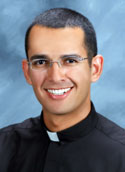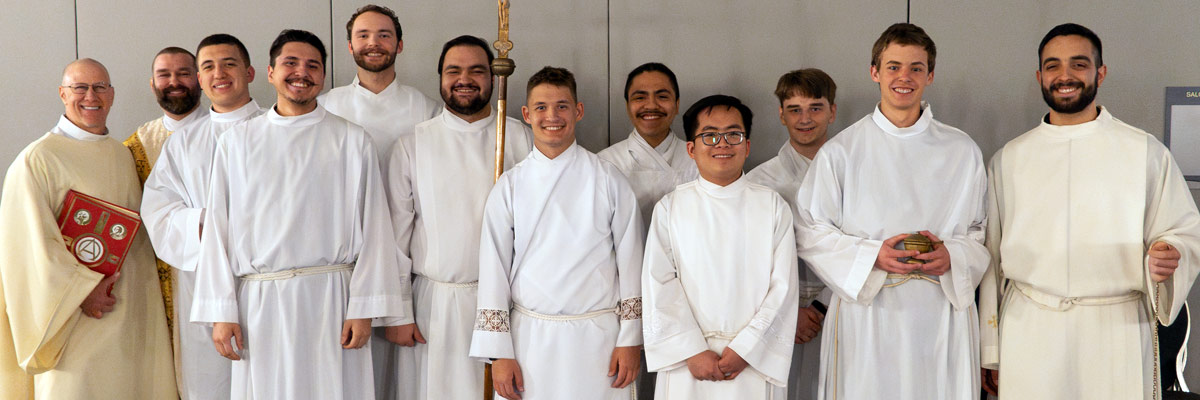Official Website of the
Catholic Diocese of Little Rock
Letters from Seminary
Priests are caught between two worlds
Published: January 22, 2011
By Mauricio Carrasco
Diocesan Seminarian
“But our citizenship (or commonwealth) is in heaven, and it is from there that we are expecting a Savior, the Lord Jesus Christ.” (Philippians 3:20)
I consider myself a Mexican-American. I lived my childhood in Mexico, but I have lived a great part of my life here in the U.S. Many people think that belonging to two cultures is a great blessing. This is very true.
 However, they do not realize that many times it can seem like a great curse. We welcome the idea of belonging to two worlds much more willingly than those two worlds might actually welcome us.
However, they do not realize that many times it can seem like a great curse. We welcome the idea of belonging to two worlds much more willingly than those two worlds might actually welcome us.
I moved to the U.S. at the beginning of my adolescence, a period characterized by one’s search for belonging. For me, this period was defined by the fact that I was the son of two cultures, and yet belonged to neither one.
For example, most of my Mexican peers in Arkansas were obsessed with “low-riders,” a classic car styling a ride low to the ground and with a fancy suspension system that allows it to change heights in a matter of seconds.
However, coming from a small farming town in Mexico, this idea was completely foreign to my imagination. While most of my friends drew pictures of “low-riders,” I dreamed of having a tractor like my uncle’s.
On the other hand, while most of my American peers rode to church in big fancy SUVs, all my family rode together in a van from the 1980s. Our van was a lowrider, not because of a fancy suspension system, but because it was full of people. All throughout junior high and high school, I never really belonged.
The Mexicans, not knowing how to understand my difference from them, said I was too American. The Americans never really said anything; our living realities said loud and clear that I was too Mexican for them. As an immigrant, I have spent most of my life caught between two worlds, yet never fully belonging to either one of them. As a seminarian, I find myself caught between many different worlds.
Our diocese is very diverse. It is made up of many different little worlds, not just in terms of culture, but in terms of how we think. Part of my journey to the priesthood then has necessarily involved learning to deal with all these worlds.
I think that my experience as an immigrant is the Lord’s way of preparing me for the priesthood, because the priest is always caught between worlds. This has become very clear to me through my years in seminary. I often find myself caught between cultural and ideological differences.
In marriage counseling ministry, I have found myself caught between two people who vowed “to become one flesh (Mark 10:8); yet, they have come to discover that they are worlds apart.
As the shepherd of many different people, I will have to live in the midst of clashing worlds, never fully belonging to any single one of them. I have discovered that one can never approach priesthood attempting to belong. One can only journey toward priesthood hoping to learn to live caught between worlds.
In the end, the priest’s most powerful testimony lies in his ability to live caught between two worlds. He is to be in this world and yet not belong to it. By his constant reminder of our citizenship in heaven, he becomes a bridge for the clashing worlds he finds on this earth.
This series was written when seminarian Mauricio Carrasco was studying for the priesthood and chronicles the joys and struggles of his formation along the way. Today, Father Mauricio Carrasco is a priest serving the people of the Diocese of Little Rock. The series was originally published in Arkansas Catholic. Copyright Diocese of Little Rock. All rights reserved. It may be copied or redistributed with acknowledgement and permission of the publisher.




